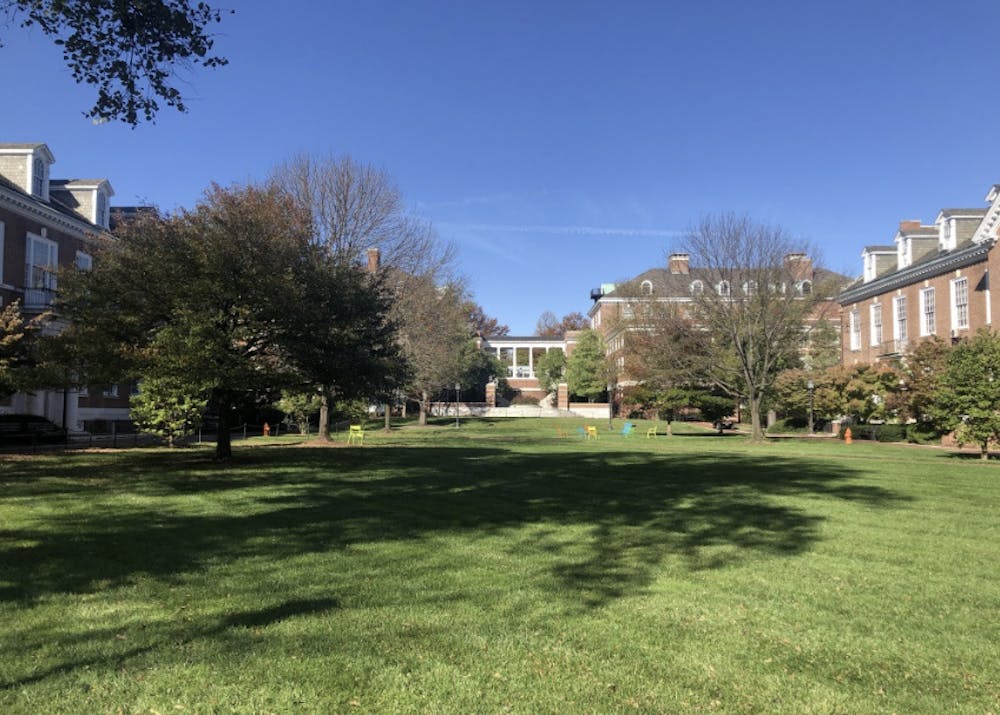University administration sent an email to the student body on August 1 with changes to COVID-19 protocols and updates regarding the monkeypox virus.
Upon arriving on campus, students have 72 hours to self-test for COVID-19. If a student tests positive, he or she must notify the Student Health and Wellness Center (SHWC) and isolate off campus for five days. Students will only be allowed to return to campus if they receive a negative test after five days or are cleared by SHWC.
Asymptomatic testing and masking will not be required for anyone on campus, including those with vaccine exemptions. However, PCR saliva testing, rapid tests and masks will still be made available for all affiliates throughout the fall semester. If there are outbreaks during the semester, the University may choose to reinstate testing and masking requirements.
Vice President for Communications Andrew Green commented on the possibility of an outbreak in an email to The News-Letter.
“We have maintained critical infrastructure for controlling an outbreak, should one occur, including supplies of high-quality masks and a range of testing capacity, including symptomatic and asymptomatic PCR testing and at-home rapid test kits,” he wrote. “Given the near-universal rate of vaccination within our community and two-and-a-half years of experience in managing the pandemic, we have confidence in the safety of our current policies.”
The University has also lifted all restrictions on events, gatherings and dining.
Hopkins faculty and staff who feel ill or are exposed to COVID-19 should continue to utilize the Hopkins COVID-19 Call Center at 443-287-8500. Employees are still eligible for ten days of COVID-19 leave in addition to other forms of leave.
Students should call 410-516-5709 or email SHWCintake@jhu.edu. If anyone tests positive, they should isolate for at least five days. Residential undergraduate students will still have to isolate in place, but accommodations will be made based on the discretion of medical professionals.
According to the email, administrators updated the school’s policies after consulting with Hopkins experts in public health and considering state and local regulations. The University will continue to monitor public health conditions and will reinstate safety measures if needed to protect the health of the community. However, they expect the fall semester to continue in-person as planned.
Senior Christal Oji raised a few concerns regarding the University’s changes to its COVID-19 guidelines in an interview with The News-Letter.
“[The University] hasn’t been prepared in the past, but hopefully they have learned from their previous decisions,” she said. “Considering that freshmen tend to get sick their first few weeks on campus, the addition of COVID and lack of isolation housing leads me to suspect that there may be a small outbreak on campus.”
Green noted that the University is closely watching public health conditions and consulting with University experts. If necessary, the administration will enact additional precautions to protect students, faculty, staff and Baltimore neighbors
He emphasized that those with personal risk factors are encouraged to take additional precautions, such as mask-wearing.
“Proper, consistent use of a high-quality mask is very effective in protecting the wearer, even if others are unmasked,” he wrote.
The broadcast also provided additional information on the University’s plans to prevent the spread of monkeypox. Although administrators are not aware of cases among Hopkins affiliates, they will continue to monitor cases, testing and contact tracing of infected individuals with the Maryland Department of Health. The University will be assembling a group of professionals to guide their response to monkeypox.
Green explained how the University will distribute treatment for monkeypox.
“Because of limited supply locally and nationally, human monkeypox vaccine and treatments are not currently available through routine providers, including the Student Health Center; however, we will continue to be in contact with the Maryland Department of Health, which is coordinating these resources for the state,” he wrote. “Johns Hopkins Medicine provided helpful FAQs on monkeypox here.”
He shared that the University will be working on communications and educational materials for the community, with focused outreach to disproportionately affected communities.
Oji shared her enthusiasm and nervousness concerning the return to in-person activities in the upcoming academic year.
“I just haven’t seen large amounts of people in a space since my freshman year, so I’m excited to see all the events and finish my senior year,” she said.





